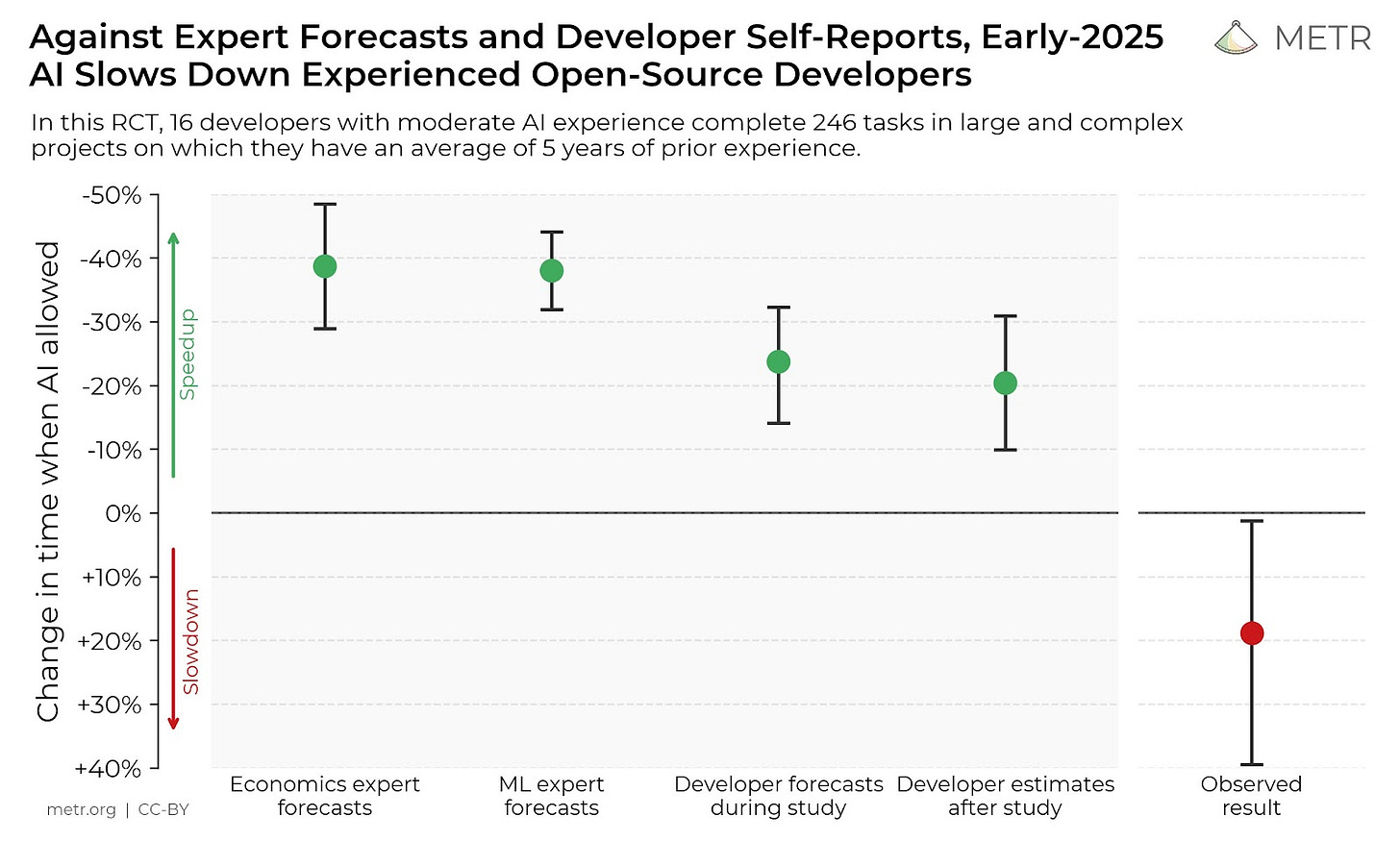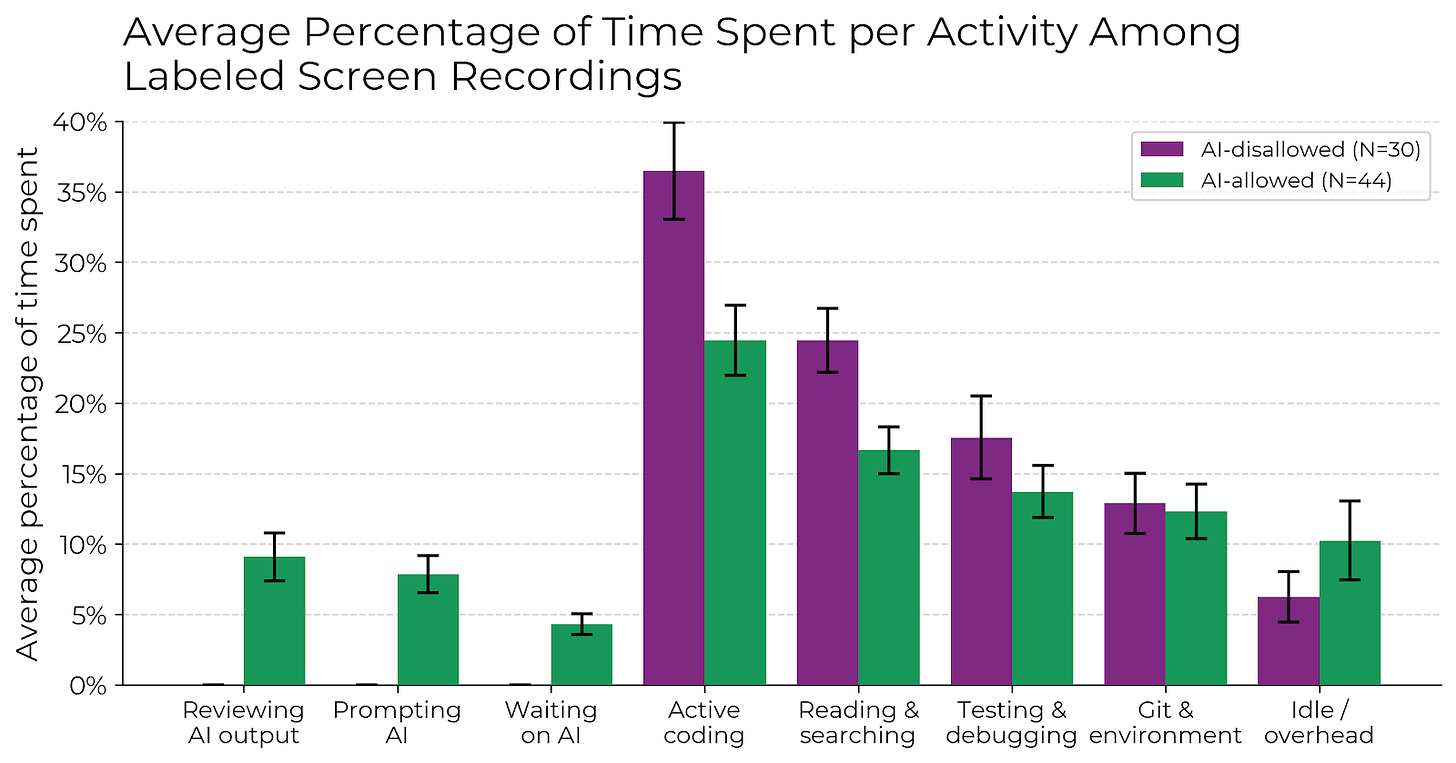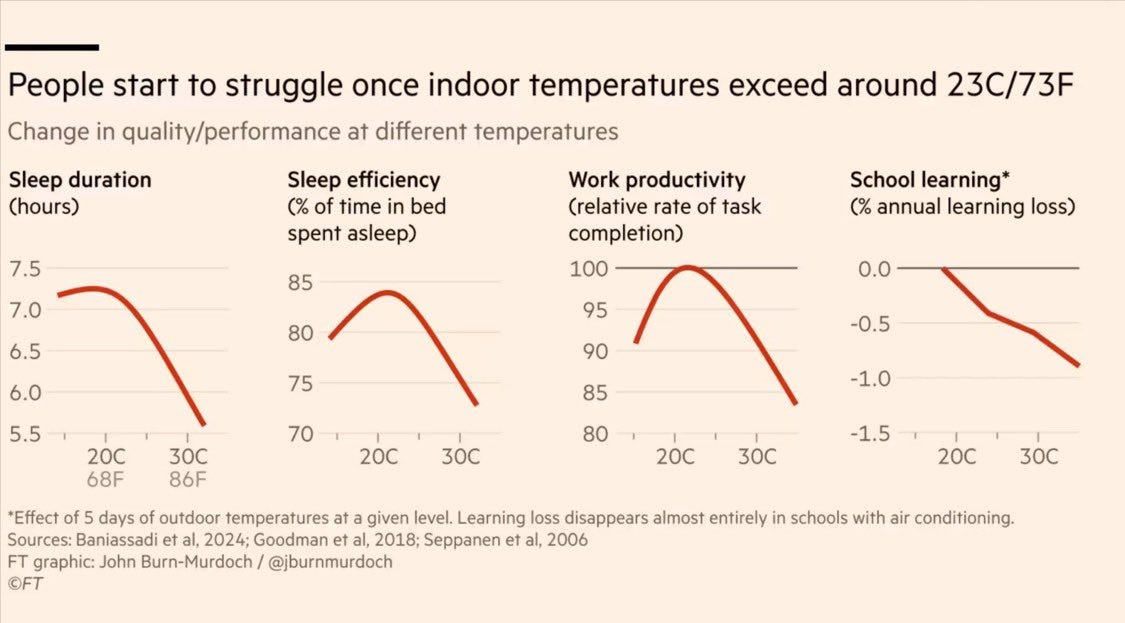3BI: AI Productivity Illusion, Friction, and Discipline
Welcome to my 3BI newsletter, where I share three insights from the world of behavioral science on psychology, decision-making, and behavioral change.
Did someone forward this newsletter to you? Sign up here to have every new edition delivered straight to your inbox.
AI Feels More Productive Than It Is
AI hype grows and grows, with its biggest promise being that it will hypercharge productivity to the point that it may even replace many human workers. I’ve written recently about how I’ve been finding it useful for my own work and, indeed, its enhancements to my productivity have made it a staple of my workflows.
What if that perception of productivity is an illusion, though? In a new paper by AI research think tank METR, they found exactly that. From their blog:
When developers are allowed to use AI tools, they take 19% longer to complete issues—a significant slowdown that goes against developer beliefs and expert forecasts. This gap between perception and reality is striking: developers expected AI to speed them up by 24%, and even after experiencing the slowdown, they still believed AI had sped them up by 20%.
Very interesting! While I would not have been that surprised to see people overestimating the impact on their output, I did not expect that perception paired with a decline in productivity.
How could this be? In this particular study, there appear to be a variety of factors:
When AI is allowed, developers spend less time actively coding and searching for information, and instead spend time prompting AI, waiting on/reviewing AI outputs, and idle. We find no single reason for the slowdown—it’s driven by a combination of factors.
Perhaps AI tools can be a “productive” form of procrastination that enables avoidance of the core task at hand (in this case, active coding) while maintaining a feeling of being useful.
Of course, this is just one paper, so is not at all a definitive take on the subject. The results are stark, though, and make further study very important as so much of industry rushes to implement these tools.
We Need More Friction
In behavioral science, friction refers to any obstacle or inconvenience that makes a behavior less likely to occur, even if it’s so small that it seems trivial.
Friction can be good or bad. It’s good when it prevents us from giving in to temptations, like keeping unhealthy snacks out of the house so a trip to the store is needed to satisfy cravings. It’s bad when it hinders us from doing what we want to do, like the gym being too far away to make workouts convenient.
An interesting tension of the modern age is how friction is distributed in uneven ways. From Kyla Scanlon:
We’ve mistaken convenience for progress. Instead of making everything easier, we need to make important things appropriately difficult in the digital world.
It’s trivially easy to be mindlessly entertained on our phone or have fast food delivered to our doorstep, but it’s not any easier (and, in many cases, more difficult) to do productive and satisfying things in the real world. See more from Kyla below:
Discipline Beats Motivation
New York Mets shortstop Francisco Lindor dropped some good behavioral science-backed knowledge during the MLB’s All-Star week:
I’m not motivated, I’m disciplined.
Motivation comes and goes. I’m disciplined in what I’m going to do day in and day out. I do it so my kids can see me, that Dad goes out there every day and just works as hard as he can because he wants to be the best.
Motivation isn’t a reliable factor in taking the actions we want or need to do. Consistency via habits and systems is the winning formula.
Check out the interview clip here:
Other Stuff
I wrote last week about how high temperatures make us less helpful to others. The Financial Times has an infographic on how heat hurts other parts of our life:
Nobody wants to hang out on TV anymore. “Back in the day, you could turn on your television, tune to any number of channels and see a group of four to six beautiful and quirky friends lounging around, talking about their lives, sharing the details of their recent bad dates, complaining about unruly bosses and bonding over the latest antics of weird neighbors…This was called hangout TV.
Aside from a couple of new shows driven by the TikTok-famous personalities that star in them…which are well reviewed but not broadly watched, it seems like no one wants to hang out on TV anymore. How did a trend that seemed to rule the small screen seemingly disappear entirely?”



